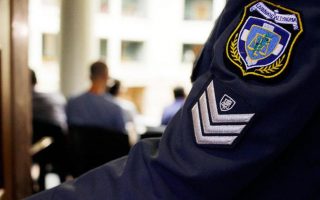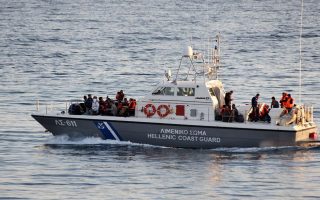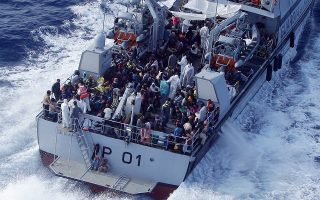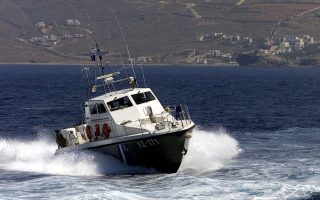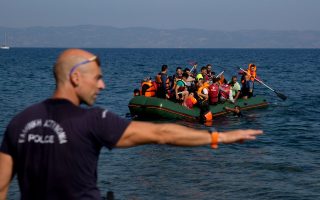Lesvos struggles to be ready as EU ‘hotspot’
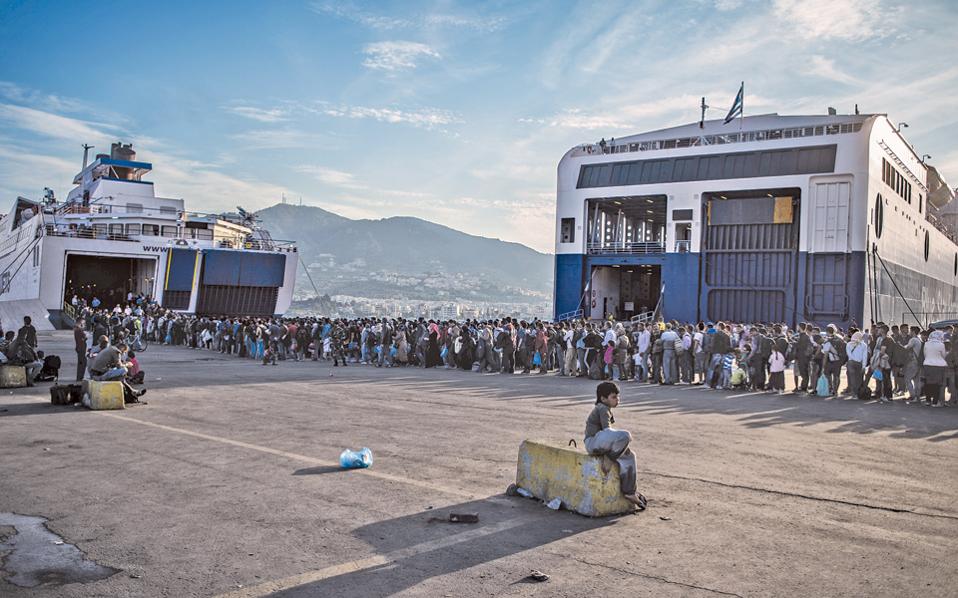
Inside the barbed-wire enclosure of Moria, Greece's main migrant camp on Lesvos island, a visiting EU leader learns for the first time how far exhausted Syrian refugees have to walk to begin their long journey to Europe.
"Sixty kilometers?" Austria's Chancellor Werner Faymann asks. "Yes, six-zero," replies Zaharoula Tsirigoti, the head of Greece's immigration police.
Over 400,000 people have landed on Greek islands from neighboring Turkey since the beginning of the year, most of them fleeing the civil war in Syria.
Lesvos is struggling to set itself up as an arrival "hotspot". The EU has established a number of these points in the region where migrants will be registered, fingerprinted and sorted into genuine refugees and economic migrants at their first entry point into the bloc.
The aim is to have the centers, in Greece and Italy, ready by the end of November.
Wet, scared and already weary from a dangerous sea crossing from Turkey, many Syrian families with small children are currently forced to walk a distance longer than the Athens Marathon from the beaches where they land to the points of registration near the port capital of Mytilene.
Buses provided by local authorities and rides by volunteers do not suffice, especially as many refugees continue to land at night.
"Upon hearing this, some migrants crumble and start to cry," says Albert Roma, a volunteer lifeguard from Spanish organisation Pro-activa.
Tsirigoti, Greece's first female police migration chief, wants to spare them the gruelling uphill trek.
"They arrive exhausted… we want to avoid further hardship. Each family has at least four children. We want to open another registration camp in the north of the island, where 90 percent of them land, and another port (in the west) to get them to the mainland," she tells AFP.
To achieve this, the Greeks say they need European funds and staff.
'Gaps everywhere'
In line with the EU's plan, Greece is trying to expand and develop registration and temporary accommodation facilities on the islands of Lesvos, Samos, Leros, Kos and Chios.
But on his return to Vienna, Faymann warned that the "hotspots" would not be ready in time.
"In terms of timing and organization, nothing has been thought through," Faymann told Austrian public radio in an interview.
"Even (to be ready)… by the end of the year requires central coordination, considerably more resources, considerably more personnel."
Austria has offered 100 officers for the registration centers.
"There cannot be one country in the EU that can solve the issue of refugees alone. Not Germany, not Austria, not Greece is able to deal with the situation alone," Faymann said in Lesvos after visiting the reception facilities on Tuesday with Greek Prime Minister Alexis Tsipras.
Originally a migrant detention camp, Moria is due to begin operating under the new system next month, Tsirigoti says.
"Arrivals are rising and there are 2.5 million Syrians waiting on the other side".
"We have asked (EU border agency) Frontex for 1,500 staff for all the islands. If there is a shortfall we will cover it ourselves," Tsirigoti said.
Frontex on Tuesday said 600 staff including the Austrians would be made available to assist with border control and registration duties.
For the time being, the main registration process for Syrians is handled at Kara Tepe, an outdoor former driving training facility just out of Mytilene.
Tempers flare
The site has four stalls to fingerprint and photograph the Syrian refugees and check their passports, manned by police assisted by UN staff and volunteer interpreters.
Families waiting for their turn seek a bit of shade under olive trees as their children play about.
When Tsipras and Faymann visited this week, there were fewer than 200 people waiting to be registered — a fact not lost on police and volunteers working there daily.
"This is a false image," one camp attendant said. "Where will these people be sheltered when it starts to rain soon?" another wondered.
Ron Redmond, regional spokesperson for the UN refugee agency (UNHCR), said they are also expanding their involvement in the country.
"With this crisis we've gone to 120 staff throughout Greece and we'll probably hit 200," Redmond said.
"We want further screening of those populations to determine who is who. The initial reception needs to be improved, not just in Greece but elsewhere. That's difficult because you're basically starting from scratch here. Italy has been handling populations like these for some time — Greece has not. So a lot of work needs to be done here."
UNHCR chief Antonio Guterres is to also visit the island on Saturday.
According to volunteer groups, tempers in Moria frequently flare among the 4,000 non-Syrians seeking passage off the island, mostly Afghans but also Pakistanis, Iranians and Iraqis.
A volunteer group, Horio Oloi Mazi, on Wednesday said that a few hours after Tsipras and Faymann left the island on Tuesday, riot police used tear gas and batons against protesting Afghans, sending one man to hospital with a head injury.
Separately, police on Thursday said they had opened an investigation after a riot policeman was pictured kicking migrants in Moria, apparently on the day of the Tsipras-Faymann visit.
[AFP]
